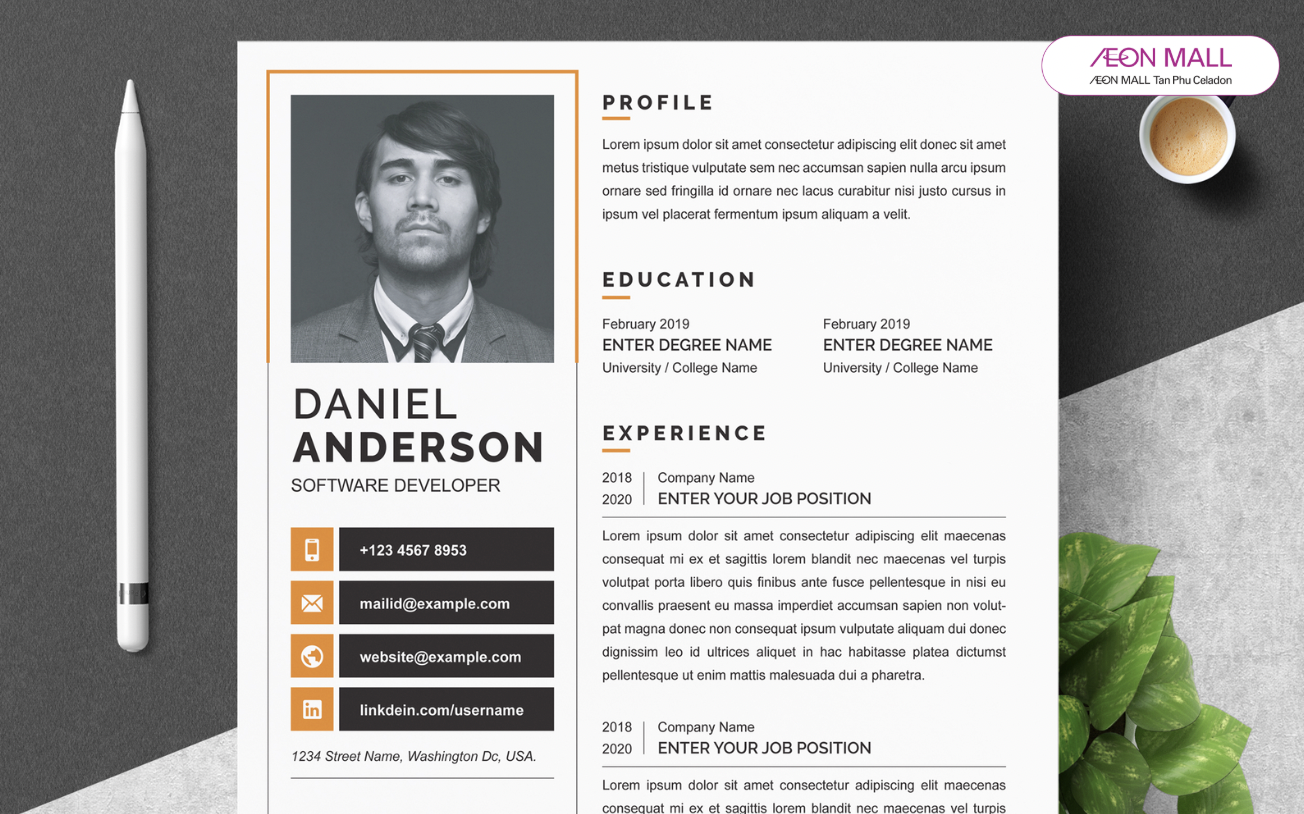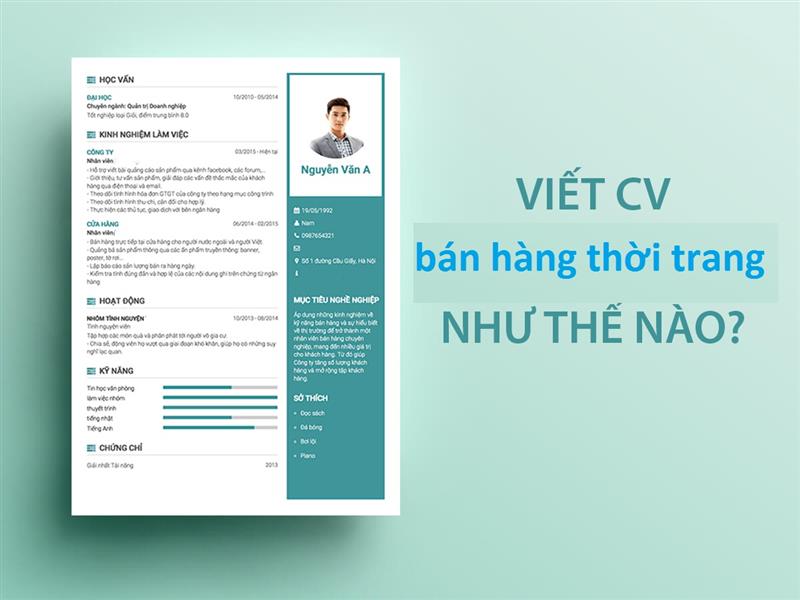
What is a CV?
CV is an abbreviation of the phrase "Curriculum Vitae" which translates to resume but is very different from the resume in the job application. So what is a CV? A CV is a summary of personal information, work experience, activities, awards, skills, etc. that the candidate sends to the employer. CV is the main basis for the employer to select candidates to enter the interview round. CV is the first step that candidates need to prepare when looking for a job.
What is the role of CV when applying for a job?
For candidates
CV is considered one of the important documents that helps candidates successfully apply for the desired job. Because normally CV will show general and complete personal information, experience and strengths - weaknesses of the candidate related to the job position. A careful and accurate CV is the way for candidates to introduce themselves to the employer and create a positive impression right from the start.
For employers
When recruiting for any position, employers receive many applications. They need to review all of these applications to choose the candidate that meets the job requirements. However, due to time and resource constraints, companies often cannot find out details about each candidate. Therefore, a CV helps employers have an overview of candidates and choose suitable candidates more quickly, saving time in the screening process and ensuring human resources meet recruitment needs.

How to write a personal information section
Includes full name, date of birth, phone number, contact address. This information will help employers easily contact candidates when they meet the requirements.
Should:
A serious email address, used regularly.
Insert a photo that is suitable for the position you are applying for, showing your face directly.
Should not:
Use an unserious email. For example: [email protected]
Photos that only show part of your face or are facing backwards, photos that are edited too much, photos with effects.
How to write a career objective
A career objective is the candidate's introduction about the orientations and desires on the path of career development of the candidate. Employers often appreciate candidates who know how to plan and have clear goals for their career.

Do:
Mention the desired position or the company you are applying for.
Can be divided into short-term goals such as mastering a certain job or long-term goals such as the opportunity to advance to a specific position within a specific time frame.
Goals that are aimed at the company's interests such as increasing sales, expanding the customer base.
Don't:
Write general goals such as wanting to work in a dynamic environment, being able to learn a lot of knowledge.
Copy someone else's career goals into your own goals.
How to write the education section
Brief summary of your education including the time of admission, graduation, school name, major and additional descriptive information such as grade point average (GPA).
Do:
Projects, scientific research if any, prioritizing achievements with content related to the position you are applying for.
Skills improvement courses, professional training.
Don't:
Put your education history from primary and secondary school.
How to write your work experience
Describe your work history in your CV. Which companies have you worked for, what positions have you held, and what are your professional responsibilities? Briefly describe your main job, concise but complete. At the same time, list your achievements and skills or experience gained during your work. This is the most important part of a job application CV, because through this section, it clearly shows how capable you are and whether you are suitable for the position you are applying for?

Do:
List in chronological order, most recent job listed before previous jobs.
Provide specific evidence, or accurate data (for example, how many % increase in revenue, how many customers gained ...).
Select the jobs listed in the CV, should be related to the position you are applying for.
Do not:
List short-term jobs (less than 6 months) except for internships.
Give too much detail on small jobs such as (printing flyers, making tea, ....).
Describe long, not divided ideas.
Write the extracurricular activities section
If you are a fresh graduate or do not have much experience to write on your CV, the extracurricular activities section is even more important, because it shows how dynamic and potential you are. Employers often appreciate energetic, enthusiastic and compassionate candidates.

Do:
List community and volunteer activities.
State your role and responsibilities in those activities.
Do not:
List personal recreational activities, according to your interests.
How to write the skills section
Employers often focus on reviewing and evaluating whether the candidate's skills are suitable for the position they are applying for or through skills to evaluate whether the qualifications and abilities meet the job requirements or not?
Do:
Ask reputable people, academic degrees or superiors to confirm the information for you.
State complete information of the reference including: full name, email, phone number.
Do not:
State incorrect information of the reference.
* Note: you should also avoid unacceptable errors such as spelling mistakes, sketchy presentation of content.
For those who have experience, writing a CV is no longer too difficult, but how to stand out in the eyes of the Recruiter still requires its own secrets, you need to know how to write an impressive CV.
Highlighting your own skills
Experienced people often have mastered the necessary skills for the job. You have the ability and knowledge to select the necessary skills and put on your CV the skills that you are confident and perform best.
The skills that you can list in your CV include: Communication skills, teamwork skills, negotiation skills, problem solving skills, as well as some other hard and soft skills.
Achievements during work
Achievements are an advantage for experienced people compared to new entrants or graduates. You have spent a long enough time to have significant milestones in your career. However, please note that you should only include the most outstanding achievements in your CV to avoid a lengthy, unfocused CV. In addition, prioritize skills related to the job you are applying for so that the employer can consider them more carefully!

Fresh graduates have weaknesses in experience and working skills because they have not had time to "practice" through jobs. However, new graduates also have their own advantages that if you know how to put in your CV, you can completely be recruited. You can also refer to the article for more details on how to write a CV for fresh graduates.
Activities
If you do not have experience, you can emphasize the activities section to impress the employer with an active and enthusiastic person, but avoid listing too much.
Hobbies
Through this section, the employer will know more about the candidate's personality. If you can show your personality and attitude through hobbies that are suitable for the position you are applying for, this will be a plus for those who lack experience
For example: If you are looking for a job as a Salesperson, the suitable hobbies are talking to customers.
For part-time job applicants, employers often appreciate those who have relevant experience or have suitable skills and potential. Therefore, you need to pay attention to some points when writing a part-time job CV:
Include past jobs related to the position you are applying for, do not list all past jobs
Provide skills that are suitable for the job
For part-time jobs, employers will want you to be someone who adapts quickly to the job and works efficiently and productively because your working hours are not much.

Source: TopCV